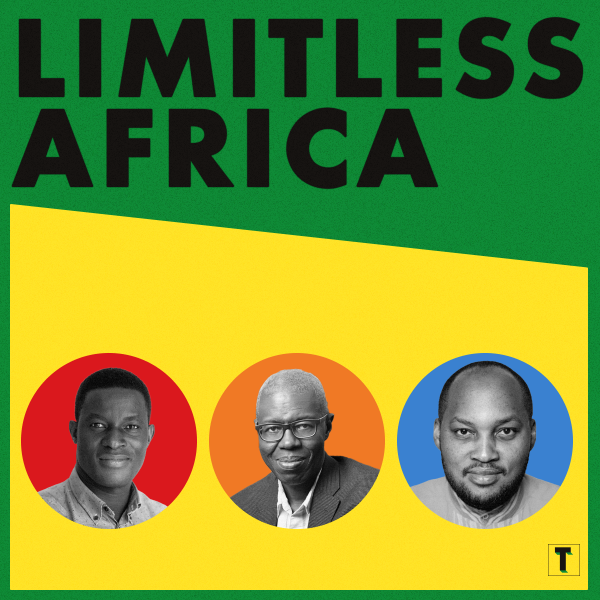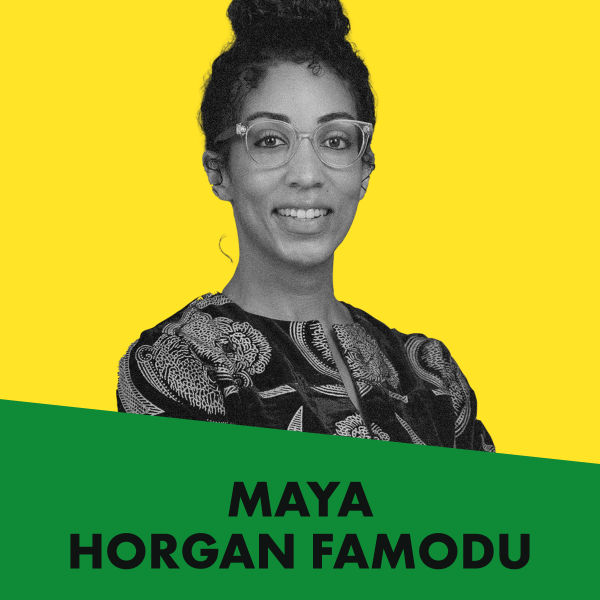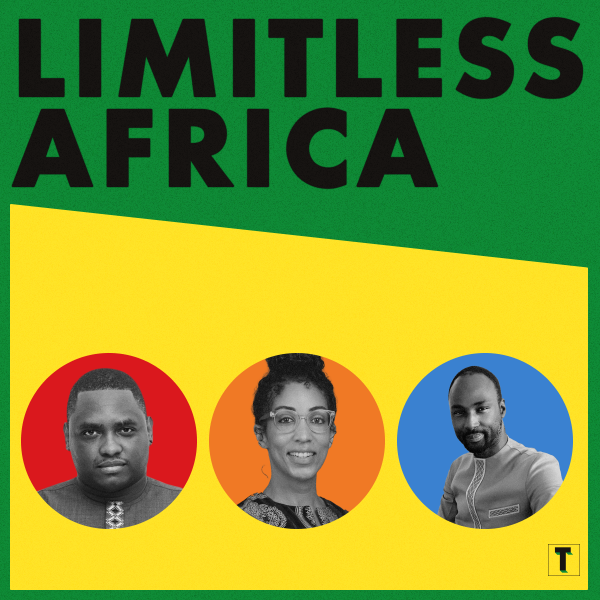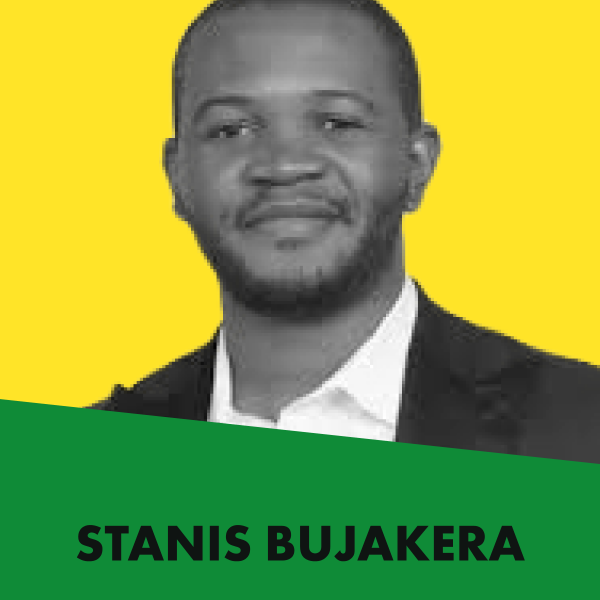Can Africa's example help in Ukraine and Gaza?
With guests Joseph Nkurunziza, Souleymane Bachir Diagne, Victor Ochen

Episode notes
Can African approaches heal international conflict?
Transcript
Claude: In this episode we discuss war and peace
Welcome to Limitless, the podcast that asks the questions that matter for Africa.
In each episode, we ask three guests about one issue that matters to Africans. We’re looking for African solutions to African problems.
The Limitless Podcast is supported by the U.S. Department of State and the Seenfire Foundation.
Many wars have been waged on African soil. But it also means that Africans have something to say about conflict resolution. At a moment in time, where...
Claude: In this episode we discuss war and peace
Welcome to Limitless, the podcast that asks the questions that matter for Africa.
In each episode, we ask three guests about one issue that matters to Africans. We’re looking for African solutions to African problems.
The Limitless Podcast is supported by the U.S. Department of State and the Seenfire Foundation.
Many wars have been waged on African soil. But it also means that Africans have something to say about conflict resolution. At a moment in time, where conflict seems to be all around us, I wanted to highlight three approaches to peace.
First off, I wanted to look at this more generally, and take a philosophical approach. I spoke to Souleymane Bachir Diagne. He’s one of the foremost scholars of Islamic and African philosophy and a professor at Columbia University in New York.
I asked him about what the South African philosophy of Ubuntu can teach us about building peace.
Souleymane Bachir Diagne: The concept of Ubuntu that South Africa has constructed as a philosophical, ethical and legal concept of reparative justice, the idea of restorative justice and transitional justice, the idea that at one point, the the only good answer, to tragedy, to atrocities is to look forward to a better world, to look forward to the situation, as if it has been already repaired.
That was very important in apartheid South Africa and post apartheid South Africa and it was really something, a lesson of humanism, that South Africa then, the South Africa of Desmond Tutu and Nelson Mandela, taught the rest of the world.
Claude: Do you think that the leaders on both sides in Israel and Hamas can learn from the African process of truth and reconciliation?
Souleymane Bachir Diagne: I think something huge has happened when South Africa decided to just go to the international court and accuse Israel of genocide. One can discuss the content of this but the fact that this was an initiative coming from a country like South Africa, coming from the Global South, coming from our own African continent, is something very, very consequential. And it is really a turning point in our geopolitical world as it is.
So I think that today raised the amount of atrocities to us again, the only word that one can use given what the situation is, and given the amount of suffering and given the tribal nature of this war, the only way to move forward is precisely to look for the humanism of Ubuntu and the wisdom of Ubuntu and say, why don’t we project ourselves in a future of peace?
It has to be a future where Palestinian people and Israelis are living in their own states and being fully citizens and not being occupied people for example, and look at that picture and look at the right actions that are going to lead us there. And this is the wisdom of Ubuntu. Deciding that at one point, the actions you have to take today should be dictated by the future that you need to go towards rather than the past because the past is just going to repeat itself otherwise.
Claude: You mentioned the divide between Israel and Palestine or Israelis and Palestinians. But do you also believe that there’s a divide between Jews and Muslims, because even you have written so much about the history and the philosophy of Islam, but historically, has there always been a divide? And in some cases, I can even call in hatred between Jews and Muslims.
Souleymane Bachir Diagne: Well you know, this kind of hatred of Jews, we have to remember that problems happen in Europe, and that the Holocaust happened in Europe. And we have to remember for example, if you want to look at historical examples, that when the so called Reconquista of Andalusia happened, when the Muslims were kicked out, they were kicked out with the Jews that lived also in Andalucia. So we do have in history, the testimony of the way in which about the way in which Jews and Muslims lived together, they live together in northern part of Africa, it was not always beautiful, wonderful etc, but you did not have the kind of pogroms you had in Europe, for example, and we have to avoid also translating in simplistic terms, in religious terms. What is happening in Israel/Palestine what is happening in Israel/Palestine is a question of land, and a question of citizenship, and a question of, right. So if we transform it into a kind of cosmic war between the cosmic entities that is the Jewish religion and the Muslim religion, we are going to miss the point and we are not going to reconcile them because you do not reconcile different metaphysics and even in that case, if you look – if you look at the content of the religions, religious dialogue, it would be then possible, but let’s just not forget that this is not a war of religions. It is primarily war about land that needs to be shared by two people in many different forms.
But let’s remember that the last genocide of the 20th century, which happened on the African continent happening happened in Rwanda 1994 1994. Here you had neighbours, killing neighbours. And even in a situation like that, a situation of genocide, a situation of massacre, they were able to try to move on, to try some Ubuntu, to try some forgiveness.
Claude: So what about Rwanda now? How has it moved on from a civil war in 1994 that left over half a million dead. Joseph Nkurunziza is a medical doctor and CEO of Never Again Rwanda. It’s a peace-building NGO which works in 22 out of the 30 districts of the country. He told me about Never Again Rwanda and the painstaking work it does to repair a divided society.
Dr Joseph Nkurunziza: Never again as an institution, it has four pillars. The first pillar is peace building. Within the peace building programme, the organisation has been organising what is called ‘Safe Spaces’, groups of women and men meeting on a monthly basis to discuss about their past. These safe spaces also bring about trust, when citizens meet, have a dialogue, they end up developing trust amongst themselves. After developing that trust, people can work together. As you might be knowing within the African context, people join efforts in farming in coming up with income generating activities. So they can’t be able to achieve these initiatives, if people can’t talk to each other, if people have not healed, if we don’t have trust.
Then, in the pillar of governance and human rights, we engage in citizen participation. We totally I believe that in order to have sustainable peace, and to have proper governance, there is need for involvement of the citizens. We organise spaces, which we’ve called Citizen forums, where citizens meet and discuss about issues affecting them in their own communities. And when these issues are identified, the citizens themselves elect three members from their committee to go and meet with the local leaders and discuss how these issues can be addressed.
So the third pillar is youth engagement. There is need for great efforts when it comes to young people because they are the majority, to make sure that they are involved in planning, they are involved in governance, they are well versed with conflict mitigation approaches.
The fourth pillar is research. All the kinds of work we do is based on evidence.
Claude: How do you think Rwanda’s example can help regions that are torn by conflict – I’m thinking specifically about Gaza and even Ukraine?
Dr Joseph Nkurunziza: It’s just very unfortunate that human beings, we don’t learn from history. But also the another interesting component within the Rwandan governance system is that what was built after the genocide, it came from the discussions. People had to sit and look at the contexts, visit their past and look at what lessons they can draw and what initiatives can be used in order to shape the future of the country. And that is missing in these international spheres. People meet and discuss but they don’t discuss all the real issues. They discuss things based on their interests. When you look at what is happening in Gaza, the Middle East is the focus of global power brokers.
Claude: While Rwanda is trying to deal with the past, for other countries, violence continues in the present. I spoke to Victor Ochen. He grew up in a refugee camp at the height of the Ugandan civil war in the 80s and 90s. He supports local communities still affected by war with his organisation AYINET, the African Youth Initiative Network. He works hard to give voice to those who often remain unheard: civilian victims caught up in conflict. Here’s our conversation.
Victor Ochen: What do you think what you saw and what you were able to accomplish in Africa can actually teach us about how to deal with the consequences of that war in Ukraine and also the war in Gaza?
Victor Ochen: Well um, the war in Ukraine has been devastating, to be honest. Two months when war started in Ukraine we were approached by an institution in the ukrainian government reached out to us and said we are looking for a institution that can provide us some skills ah in order to support response in care of women and children who are caught up in conflict. Unfortunately these skills exist in Africa because this is what Africa has been going through for so long…
Claude: And in so many different parts of Africa and you know Eastern Africa where’ from at other um, the DRC, Democratic Republic of Congo, Liberia yeah Sierra Leone
Victor Ochen: All over the continent. Your name and the organization came very prominently as the an institution working to support victims of war so we are asking. Is there a way you can provide support to the teams of psychologists and psychiatrists who are providing response to situation in Ukraine. My organization started coordinating a group of expert ah psychologists and psychiatrists from different parts of Africa and then we were providing virtual training for hundreds of ukrainian psychologists and psychiatrists including providing police training. We started providing this support and then we realized things that the the nature of atrocity is committed again as women in Ukraine was also is the same that we’ve been having here in Uganda, in Congo, in so other parts of the continent.
History, as I said it earlier on, history is a very powerful weaponon depends on how it is used and when it is used. And the most painful history is always renewed by what what when when we fail to manage the situation. Let’s say the ongoing conflict between Israel and Hamas or the war between Ukraine and Russia. Whether it’s also similar to the war in South in Sudan, in DRC.
It gives us the fresh reminder of what we lived in for decades in Northern Uganda and it’s also to me very tough seeing families who are crying out loud in pain for their abducted family members. And whilst it also breaks my heart seeing how the innocent civilians are being killed on both sides of the conflict. But of course at the end of the day our experience on this side, having lived in conflict, we know what it means to be bombed, we know what it means to be displaced. We know what it means our family members abducted to to be honest with you. Nothing hurts more than having a member of your family take in and you can’t do anything about it. And my own brother was abducted. It’s now 20 years since he was gone but whatever I see my dad who is now 83 years is worried, he is not so sure he is going to see his son again and he has waited for 20 years
He is one of the over 30,000 people of Northern Uganda who are still waiting for their family members who were abducted and they have never come back.
So to me the test of human patience is when you come and take away a family member. Nothing taste good, no water taste nice, no food taste nice, knowing that you are here eating, you are drinking, you are showering yet your family member might have not drunk water for the last three days or crying or injured. This kind of feeling, this kind of powerlessness, it can only be paralysing. The amount of pain, the amount of powerlessness, the amount of anger that consumes your bones, your blood just burning with inexcusable kind of, you know the feeling, the rage, is so difficult to to understand. That’s why some people feel like you know what death would have been better if they were killed as opposed to being taken alive.
War is bad but war that leads to abductions of innocent civilians, children, the old and the weak, I don’t think anybody should even think that’s a good war.
So to me a lot that the world can learn from Africa we don’t offer weapons but we can only offer experience. What we lived in Northern Uganda is happening in Gaza is happening in Israel. Is happening in Ukraine and although the fights happening in Congo in Sudan it breaks my heart to see so much that we could have avoided continues to happen.
Claude: Thank you to all our guests. Progress towards peace is still possible even when the situation is bleak. Only truth telling, honest dialogue and compromise – at all levels – will heal divided societies. Be it in Ukraine or in Gaza, each situation is different and complex but hopefully these Africans forging peace will offer inspiration to the world.
Listen next
"It wasn't just an overnight thing. Seeds were planted."
With guests: Maya Horgan Famodu
LISTEN NOW 55 min
How did I make my first million?
With guests: Maya Horgan Famodu, Moulaye Taboure, Moutagna Keita
LISTEN NOW 15 min








